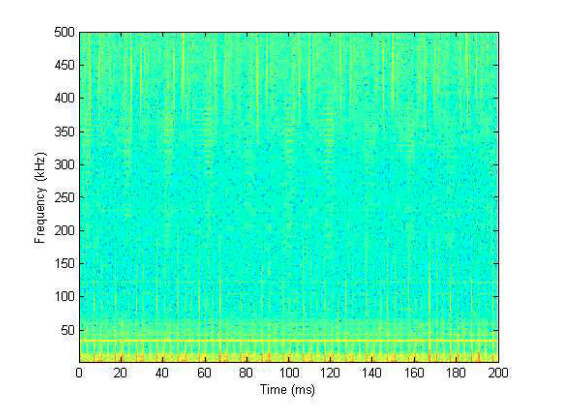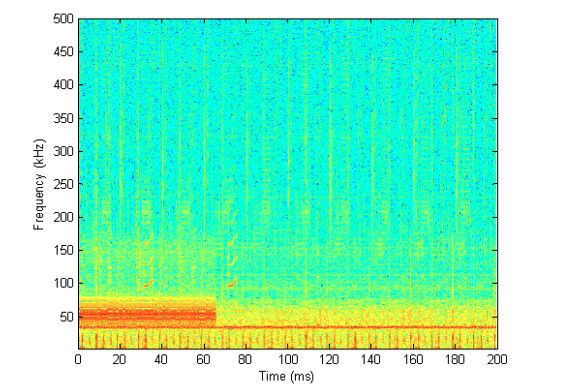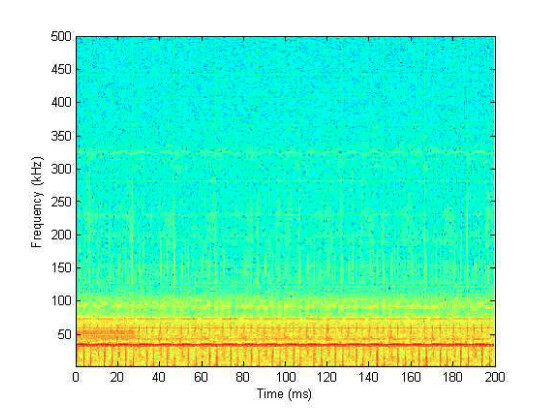I’m having a serious noise issue with my dwarf and I read your post ("…crush this issue") and I just have to ask - have you decided not to crush that dwarf and use the pliers instead? I’m guessing not many people will understand this one.
Tbh I’m not grasping what you’re implying.
The solution in my instance, and many others; is a double insulated, groundless power supply.
I tried everything else that I could do for troubleshooting noise in this thread, and we verified the result.
Sorry for the confusion. We were talking about the dwarf and you said “Let’s crush this issue”. I immediately thought of the Firesign Theater album “Don’t Crush That Dwarf Hand Me the Pliers”. Completely unrelated to this topic or anything else in any of the forums.
I am having the noise issue though. I’ve tried everything I can think of to eliminate it to no avail. I do have a Trippl-Lite circuit tester and it shows that the mains have an open ground on one circuit and a hot-neutral reverse on another. Even the UPS shows open ground. Yesterday though I don’t think I was having any trouble - I don’t see how I could have missed it. There’s no doubt that the house wiring is pretty messed up, though.
Unbeknownst to many, this alone is a major electrical issue. Other than increasing tenfold the risk of shock, when harmonics are introduced and your polarity is reversed, noise goes up tremendously. If you have fluorescent or low-quality LED lights in the house, much more so.
The graph below is a very low noise power grid in the spectometer:

(Very low noise at around 35Hz. I would say most of our homes would have at least this amount of noise.)
Then you turn on fluorescent lights, and here’s what happens:

(Notice the massive disturbance up until 60 ms. That’s the transformer firing up, but as you see the noise at about 35 Hz that was minimal now is a solid red line and its harmonics go up to 70Hz.)
Then you turn on your computer and router:

(Noise is even stronger.)
What is the solution?
Fixing the grid for one, then applying good quality filtering on your audio equipment power mains.
The spectogram of a good audio studio would be entirely green/blue.
As a consequence of the ground being open/faulty in the house.
Although in theory – please notice the bold italic! – the ground being open also means the ground pin is not connected, it might be the case that your house has an electric installation of the TN-C type, whereby the ground and neutral are connected all the way to the mains. That triggers the circuit tester to show a faulty ground, but the ground is actually physically connected to the neutral. This is the way circuits were wired up until the 60s in most of the planet, and as recently as the 2000s in some South American countries.
(A TN-C connection means that, if lightning strikes the power grid and the neutral thus gets loaded, if you touch your fridge you get electrocuted. If that’s what you have in your house, I would recommend getting it fixed.)
The amp is otherwise relatively quiet. What really concerns me is the open ground circuit and the hot-neutral reverse circuit. Given that I’m still alive I apparently have never touch one appliance plugged into the open ground circuit while also touching another plugged into the-neutral reverse, but I don’t think the results would be pleasant.
Just turned the fluorescent light off. Noise level the same. I’ll turn off the computer in a while and see what that does. Worth noting however that the noise doesn’t occur when the duo is plugged in to the amp, or when nothing is plugged in to it.
Now powering the dwarf with a Truetone CS-12 I get no noise. My only concern about that is that the output the dwarf is powered from is rated at only 1mA. The CS-12 is rated at 3A for all outputs. I’m only using 4 other (9V) devices, so - assuming I know the way this works - if they max out their rated amperage that’s only 550 mA total, leaving 2.45A for the dwarf.
meaning that:
a. your audio source (guitar, bass, synth) might have grounding issues, a blown capacitor, a leaky diode, etc. That’s more likely if such source is plugged to power mains (a synth) and/or if you have a pedal in between also fed the AC (try a different source);
b. cabling might be at fault, simple poor shielding in one end is enough (try a different one);
c. gain settings within the Dwarf are too high (work with those, go from zero to audible and stop there);
d. Power supply of Dwarf is faulty, leaking and/or not properly isolated (try another one);
e. reverse-wired AC mains are putting strain in one or more of your switching adapters (try another AC outlet);
f. least and less likely but not impossible, the plug and/or shielding within the Dwarf is faulty (try the other input).
Just to name a few.
It doesn’t have to be your own: the LED bed light of your neighbour upstairs; the soldering machine of the exhaust repair shop 2 miles from you; the fluorescent lights at the gas station near you, and so on. Just check what happened in Wales for more than a year: an old TV knocked out 4G towers in the entire city every time it was turned on.
(Which is why filtering/conditioning the power lines has to be done locally.)
Good.
In another post, @stevebeige said:
If that’s the case and you’re using less than 1A total with your other outputs, you have nothing to worry about. A power source unit can provide more current (A) than needed, it’s when it provides less that you get in trouble (overheating the PSU and damaging the Dwarf).
As you state,
which is more than enough.
Hi all, and happy new year!
I’ve been fighting for hours with my Dwarf and I can confirm that a great part of the noise in my case cames from the PSU.
I finally hooked the device to a Elektron Digitakt PSU, and all the hiss and digital noise was gone.
The specs of the Digitakt PSU is Class II (witch by the way is the norm for all my synth and they all are quiet = grounless, double insulated) 12V, 2A center positive. It worked with a Zoom Livetrack PSU as well, which as similar specs.
So maybe a lot of the problems might be resolved if Mod Devices looked into the kind of PSU’s Elektron, Eventide, Make Noise, Critter & Guitari, BlackStar, or Electo Harmonix use (for the brands I have here).
(Or maybe they have, I guess there’s a good reason for their own choice of PSU)
Just figured I’d share my experience with noisy PSU’s 
I solved my noise-issue completely with this 28 Euros DI-Box. The noise is completely gone! In my case it has been a ground loop issue.
Happy that you managed to solve the issue.
We are aware of the solutions/improvements that some of the PSUs that you mentioned bring. Yet, we can’t advise you to use it because they are not compatible with the certifications that we have in the device.
Hi Jon thanks for this info.
Does this mean that there are safety hazards using those PSUs with the Dwarf, even though it’s ok on other equipment ?
One must be aware that this solution (as well as others elsewhere in the forum) are for NON-grounded power supply units.
When it comes to musical equipment, is it believed that somewhere else in the signal chain – mixer, amp, house PA, etc – there will be a reliable ground, therefore allowing loads to flow to the earth when needed. However, this is a somewhat risky assumption for electric, steel-stringed instrument players. Being that the current flows all the way to the strings of a guitar or bass (the bridge of such instruments is electrically connected to the amplifier), it is a real risk that a loaded neutral or some electrical discharge will reach the hands of the player, or even the mouth of the singer who touches the microphone.
I am assuming MOD needs the grounded PSU because of its being designed to be – among many other things – a single stop device between guitar and amp. (I won’t get into the nuts and bolts of certification in Europe, but I bet the 3-prong PSU was a requirement.)
It is safer for a synth because these are not reacting electrically to the amplifier in the same way the pickup of a guitar is. The former emits a line or balanced level signal from an output transformer that can be isolated. The latter has the amp electrically interacting with the magnetic field of the pickup.
Ok thank you very much for these warnings.
After trying every single solution, I decided to return both my DuoX and Dwarf because they are the only things that make hissing and pulsating noises in my gear, whatever setup I have, even solo with only headphones, and wherever I try to plug them, home or in studios.
I don’t get why the design could not allow groundless PSUs like every single of my other pedals do, after all it IS an effect pedal.
That’s too bad and disappointing.
@Saki_Ciselas
Before returning may be you should have a chat with @Elk_wrath. He did some interesting investigations to that topic.
I read that, thank you!
I think he opted for groundless PSU. But since it’s likely to kill you from electrocution just for touching your guitar strings, thanks but no thanks.
Did you try it with a DI box?
The amps I play with don’t have balanced inputs.
The reverse DI trick does nothing. The thing is noisy even when plugged alone in the wall, and with headphones. Except with my Digitakt’s PSU that is so life threatening. And I tried 3 different grounded PSU provided by Mod Devices, each make a different hissing noise.
I thought I’d use a USB power brick, but maybe they might kill me as well?
My amp has also no ballanced options but it works perfectly with ground lift.
There are also options for killing the ground loop noise, like this one. I guess if it is noisy just by pluging it you have issues in the electrical system in your home. Thus a device that kills the groundloop right after the plug in my opinion should be the right one.
Allright thank you. Not spending another 100€ though 
Still don’t get why only Mods make so much noise when each single one of my other things is completely silent. But hey, why would things work properly?
Does each one of your other things allow you to install new plugins, route as you wish, install new OS versions with more features, etc. etc.?
Don’t take me wrong, but…
this sentence is not 100% accurate. The MOD Dwarf is that and much more. You have ground issues with a lot of other computer-based devices or even if you use a computer in your setup. That is common.
What I tried to tell you before is that for legal reasons we (MOD) can not recommend you to use other power supplies. Yet, there are other ways to fix the issue as @Kim mentioned a few. You can find a full guide here. These issues are not only related to MOD, maybe you were just lucky before or you didn’t use devices with such requirements - a Boss FX pedal, for example, does not require such things. These issues don’t happen also with all electrical installations and setups so we can’t really control to what will you connect it and where. That’s why we released good practices guides and keep trying to tackle as many situations as possible as well on the software side.
I have some yes. My Organelle is pretty quiet for instance.
You actually have two awesome products. I’m just frustrated I keep spending money to make things work properly, and that nothing works so far for me. I’ve never had such a hard time trying to solve problems and not enjoying the awesomeness of the product. And the fact that the only thing I found to work turns out hazardous, that’s pretty frustrating.